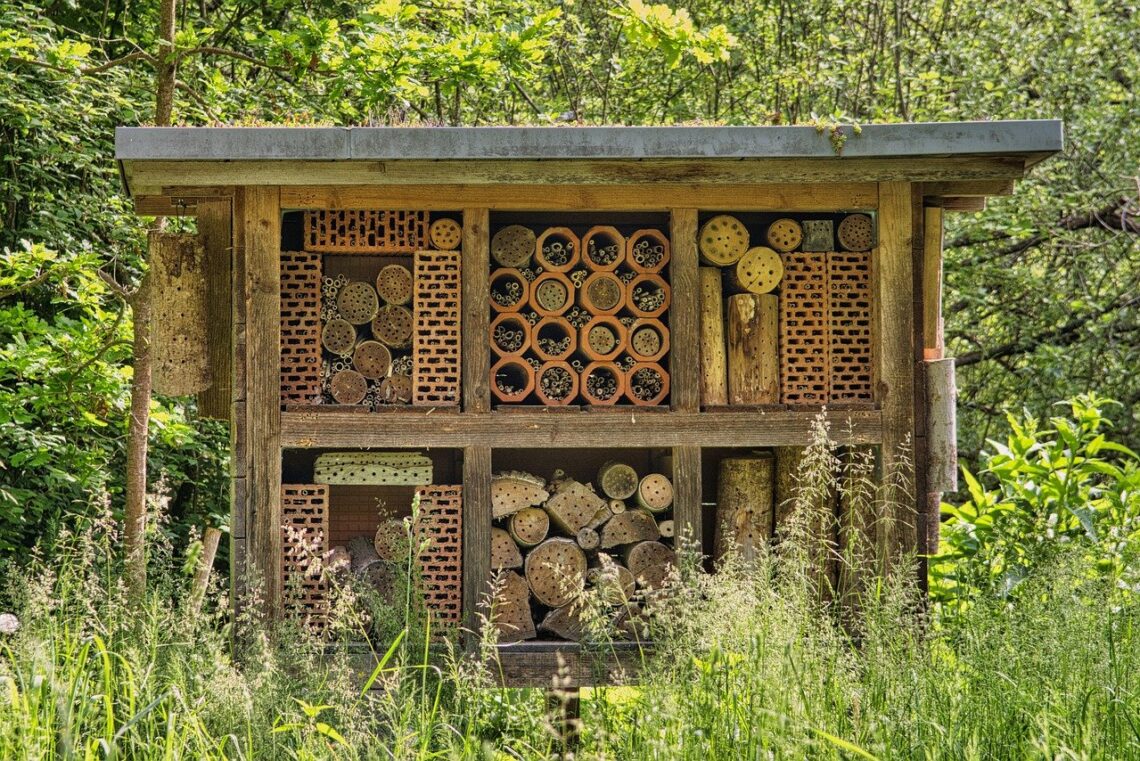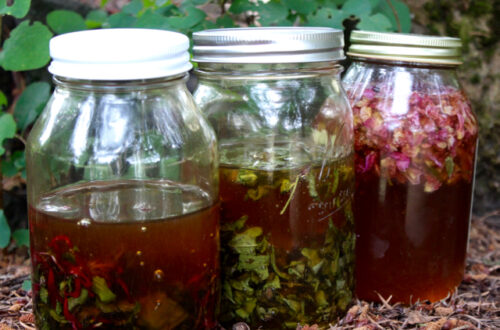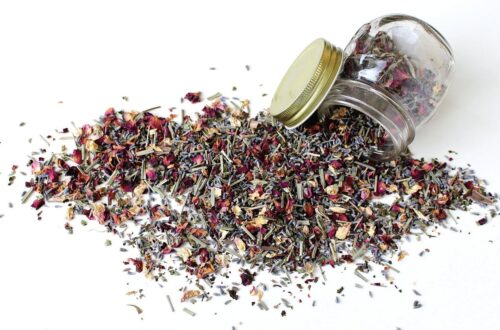Bugs, butterflies, and beetles – in our gardens and on our plants. Sometimes we are happy to see them, and often we are not. In either case, insects are necessary for our plants and consequently for us to survive. Some of them flit about pollinating, while others spend time eating and decomposing garden debris. Even the ones we dislike can be food for other beneficial insects, birds, and garden reptiles. Unfortunately, insects are generally in trouble, with almost 40% of insect species at risk of becoming extinct.
So what can we do to help save and protect the insect ecosystem?
One of the first and easiest projects we can undertake is ensuring we have plants around our home that will attract and provide food for pollinators. Many herbs make good plants for pollinators.
A big yard or garden isn’t necessary to provide plants for our insect friends. Borage, bee balm, catnip, and lavender are flowering herbs that are well suited to pollinators and are well suited for containers.
Another big problem for insects is herbicides and insecticides. To avoid using chemicals, try planting companions for vegetables and even flowers.
Basil is great with tomatoes and not just in cooking. Chives help repel carrot flies and aphids. For more tips on companion planting, see our previous article in Green Living on Herbal Plant Companions (www.greenlivingpdx.com/herbal-plant-companions/). If a spray is the last resort, use an organic or soap spray which should be sprayed when pollinators are not around, and if they show up later, they should not be harmed.
Avoid vinegar. It is not a suitable herbicide around pollinators. Instead, keep weeds down by hoeing early in the growing season.
Attract beneficial insects so insecticides can be avoided as an option. Many herbs will do a good job bringing helpful insects to your garden. For example, Yarrow attracts a wide variety of beneficial insects and is a useful first-aid tool. Likewise, Borage and comfrey are large plants that encourage beneficial insects to build homes.
Comfrey is also a superb fertilizer, either made into a tea or as mulch left on the ground at the end of the growing season. Borage is also a good companion to squash and tomatoes. For additional herbs that will bring beneficial insects to your yard and garden, see our blog article on how to Bee Smart with Herbs.
In the fall, leave behind some plant material, and insects will decompose and mulch it to enrich the soil. Lots more info about your fall clean-up in the garden in our previous article (www.greenlivingpdx.com/make-a-change/). Even throughout the summer, leave some places for insects to thrive and reproduce. We need the insects, and the insects need us to help them. And don’t forget that herbs can be useful in our lives as well. …»
…»
Erin Harwood & Eloyce O’Connor are co-owners of Garden Delights Herb Farm in Brush Prairie, WA, where they grow a variety of herbs for culinary, medicinal, pet, home, and garden use. They also offer classes.
For more info: www.gardendelightsfarm.com






